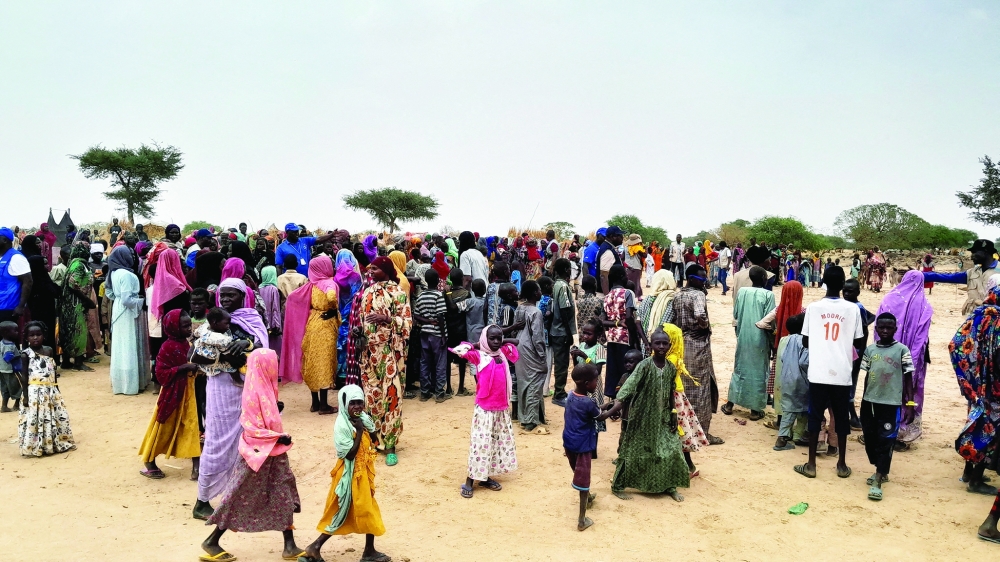

NAIROBI: In a world of competing conflicts, Sudan ranks low when it comes to getting the outside help its population so badly needs.
Three months into factional fighting that has upended life - shutting hospitals and schools, emptying shelves and banks - foreign donors have coughed up only half the funds Khartoum called for to weather the crisis.
Aid workers say daily life is getting worse - and deteriorating fast - as international attention wanes now that its embassies have emptied.
Left behind, they say, is a nation in tatters:
One in two Sudanese now depends on some form of aid.
Three million of its people are on the march.
Thousands are dead; the living are traumatised - with the weakest stuck at home without food, electricity or water.
As agencies increasingly focus on crises nearer home - be it war in Ukraine or a squeeze on aid budgets - many aid workers in the east African nation fear Khartoum has been forgotten.
Between 2021 and 2022, Africa's humanitarian needs rose by nearly 13%. But leading donors, including Canada, Sweden, Japan, Norway, and the Netherlands, all scaled back funding for the continent, United Nations data showed.
"Of course there are competing crises across the world, but Sudan is once again being overlooked by the international community," said one aid worker with a charity that provides healthcare and who did not want to be named.
"We need funding, we need security, we need the international community to intervene so that we can secure some kind of peace."
Conflict between the Sudanese army and the paramilitary Rapid Support Forces (RSF) erupted on April 15 and has uprooted nearly 3 million people, including 700,000 who have fled into bordering countries, says the United Nations.
Scores of aid agencies are struggling to respond to what is a deepening humanitarian crisis that has left 25 million people - roughly half Sudan's population - in need of assistance.
Amid the relentless air strikes, artillery and gun fire, millions of people - including the elderly and disabled - are stranded at home, unable to move about freely in search of safety, food, water or medicine.
While aid agencies are stepping up their response - distributing food, operating on the wounded and evacuating the vulnerable - they face a barrage of challenges.
Missions to rescue war-hit civilians are fraught with risk, visa applications for outside experts mired in bureaucracy. And the funds pledged fall woefully short, the aid agencies say.
"My concern is things are not piping down, they are escalating," said Eddie Rowe, the country director in Sudan for the World Food Programme (WFP).
The WFP says one in three Sudanese faced acute food insecurity before the fighting began, and the conflict has now pushed millions more into hunger.
"As I speak, 40% of the population - 19 million people - require urgent food assistance," Rowe said by phone from Port Sudan.
"Our biggest challenge is access to the areas of conflict where there are a number of households who are struggling to find even one meal a day," he said.
The fighting is also undermining the current planting season, as farmers face insecurity and struggle to cope with soaring prices of fertiliser and seeds.
VISA, CORRIDORS, FUNDING
Ahmed Ali Ahmed Ali, communications officer for the International Committee of the Red Cross in Sudan, said the fighting had wrecked power and water infrastructure in densely populated urban areas, with repairs impossible.
"Residents have difficulty accessing basic services like electricity and water," Ali Ahmed Ali told the Thomson Reuters Foundation through email.
"The power and water stations are severely damaged, and technical staff cannot access them safely," he added.
Those fleeing the country also face a dire situation as they seek refuge in neighbouring countries.
After long and dangerous journeys, they must endure severe delays at borders and limited access to water and sanitation, increasing the risk of communicable and water-borne diseases.
With no end to the hostilities in sight, aid agencies have been negotiating access with the rival military factions and have established a few corridors to deliver aid.
More are needed.
As are technical experts, so aid workers have urged Khartoum to fast-track visas for foreign doctors, engineers and logisticians.
Their mission feels most at risk from donor fatigue.
International donors have so far only pledged about $1.5 billion to aid Sudan - about half of what is required.
"With more than 3 million people fleeing their homes in just three months this is among the worst displacement crises of the 21st century," Elsadig Elnour, country director for Islamic Relief in Sudan, said in a statement.
"The situation is more urgent than ever and we pray the international community doesn't forget about us." - Reuters
Oman Observer is now on the WhatsApp channel. Click here


